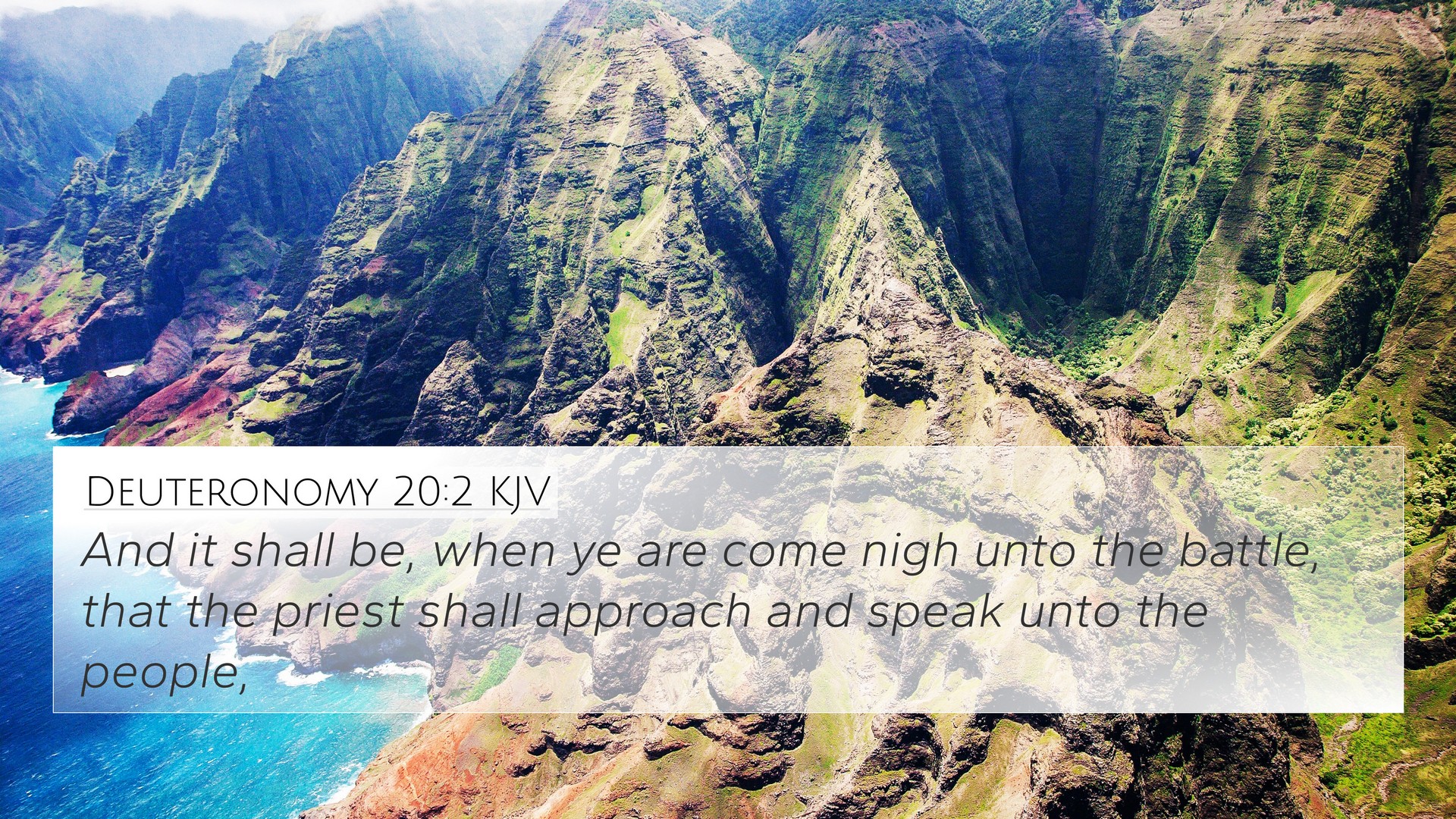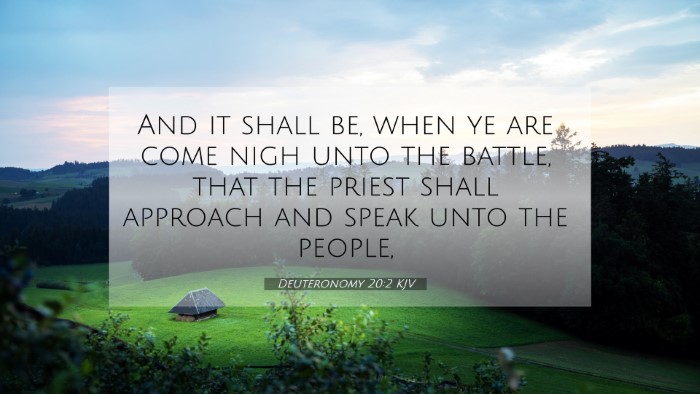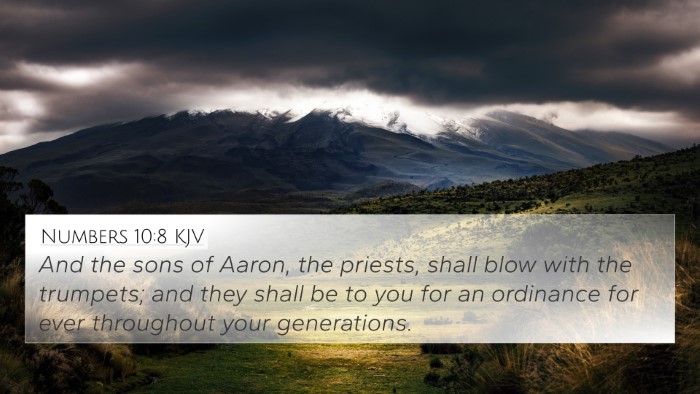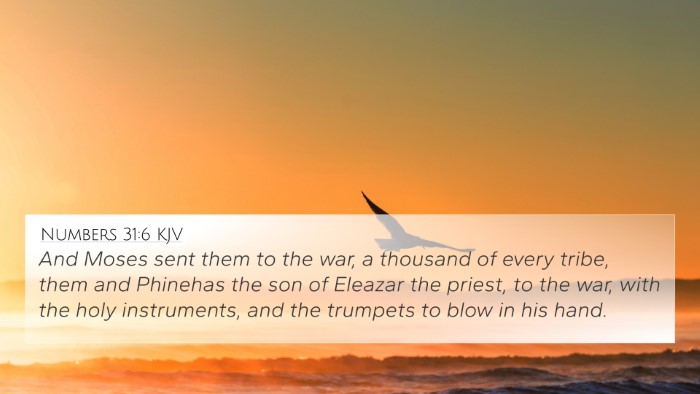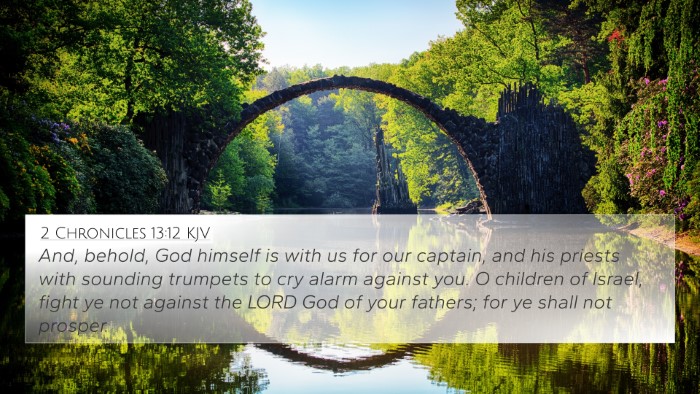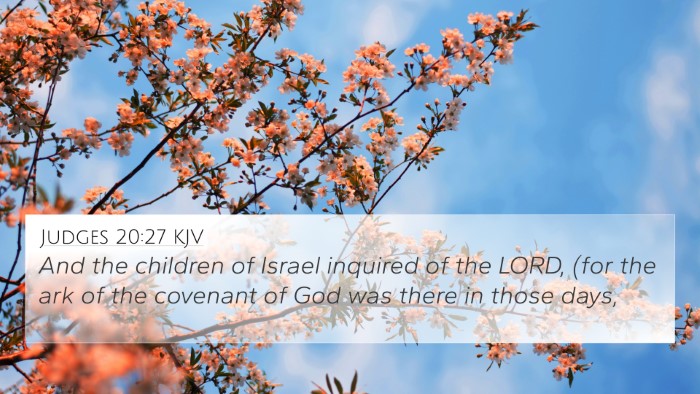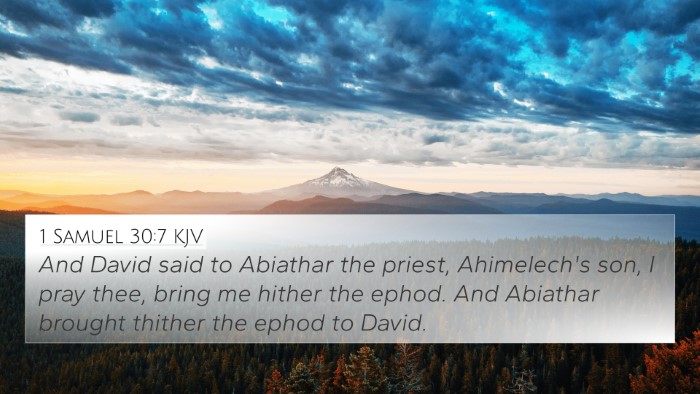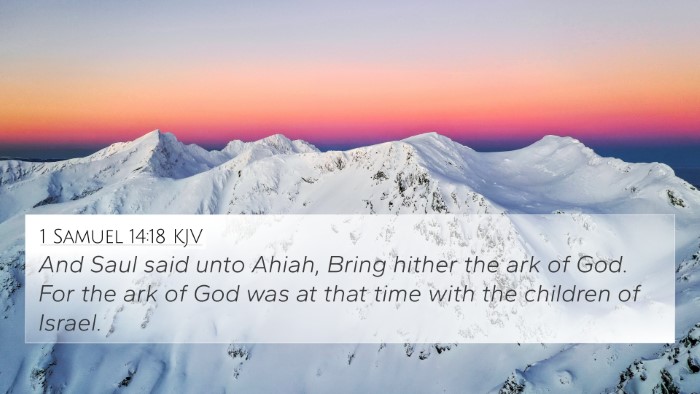Understanding Deuteronomy 20:2
Deuteronomy 20:2 states, "And it shall be, when you are come nigh unto the battle, that the priest shall approach and speak unto the people." This verse focuses on the role of the priest in preparing the Israelites for battle, emphasizing both spiritual preparedness and moral encouragement from God.
Contextual Overview
Deuteronomy is fundamentally a series of speeches by Moses, delivered to the Israelites as they were about to enter the Promised Land. In this particular chapter, a shift from the laws of peace to the realities of war is addressed. Moses articulates the guidelines for warfare, aligning physical actions with divine guidance.
Commentary Insights
- Matthew Henry: Henry emphasizes the importance of spiritual leadership among the people. The priest's role is not merely ceremonial, but a vital part of the communication of God's will. He should remind Israel of their covenant obligations.
- Albert Barnes: Barnes notes that the priest’s address signifies that the battle is not just a physical endeavor; it's also a spiritual one. The people are called to remember God's previous assistance and fidelity, which offers them confidence as they face their enemies.
- Adam Clarke: Clarke points out the necessity of divine consultation before engaging in battle. The priest is seen as a mediator between God and the people, instilling a sense of divine validation in their actions.
Thematic Connections and Cross-References
Deuteronomy 20:2 serves as a cornerstone for understanding the intertwining of spiritual and military leadership within Israelite culture. This theme echoes throughout the Bible, showcasing the importance of relying on God in various circumstances, especially in times of conflict. Below are some relevant cross-references:
- Joshua 1:9: "Have I not commanded you? Be strong and courageous. Do not be afraid; do not be discouraged, for the LORD your God will be with you wherever you go."
- Psalm 20:7: "Some trust in chariots and some in horses, but we trust in the name of the LORD our God."
- 1 Samuel 30:6: David strengthened himself in the Lord his God as he faced battle, illustrating reliance on divine strength.
- Isaiah 41:10: "So do not fear, for I am with you; do not be dismayed, for I am your God. I will strengthen you and help you." This connects to the assurance that the priest would provide.
- Romans 8:31: "If God is for us, who can be against us?" This reiterates the confidence that the Israelites are to have based on their relationship with God.
- Exodus 14:14: "The Lord will fight for you; you need only to be still." This underlines the importance of divine intervention in battle.
- 2 Chronicles 20:15: "The battle is not yours, but God’s." This reflects the assurance provided by God through His leaders.
Interpreting Spiritual Leadership
The verse emphasizes the authority of the priest in guiding the people not only in worship but also in war. This indicates a holistic approach to leadership within the community. Moses establishes that the priest’s words are empowered by God, ensuring the soldiers are spiritually fortified as they march into battle. This highlights the profound inter-Biblical dialogue regarding leadership and divine intervention.
Tools for Bible Cross-Referencing
Utilizing a Bible concordance or a Bible cross-reference guide can be incredibly beneficial when studying verses such as Deuteronomy 20:2. Here are several methods and tools that can assist in exploring the connections between Bible verses:
- Bible Concordance: A comprehensive index of words found in the Bible can help locate themes and parallel verses.
- Bible Cross-Reference Guide: Guides provide thematic connections and direct verse comparisons.
- Cross-Reference Bible Study: Structured study that involves linking scriptures across both Old and New Testaments.
- Digital Bible Tools: Many online tools allow for quick searching of cross-references and thematic studies.
- Commentaries: Using biblical commentaries can reveal insights and connections that deepen understanding.
Conclusion: The Importance of Spiritual Readiness
Through the lens of Deuteronomy 20:2, it is evident that spiritual preparation is as crucial as military strategy. The priest's role in addressing the people before battle stresses the need for divine guidance, reminding believers that success in any endeavor, particularly battles of life, comes from faith and reliance on God. The interlinking of themes throughout Scripture provides a robust tapestry of understanding that can enrich one’s own spiritual journey.
In summary, effective study of the Bible through cross-references will not only illuminate the connections between the verses but also reinforce the timeless truths and wisdom embedded in the text.
